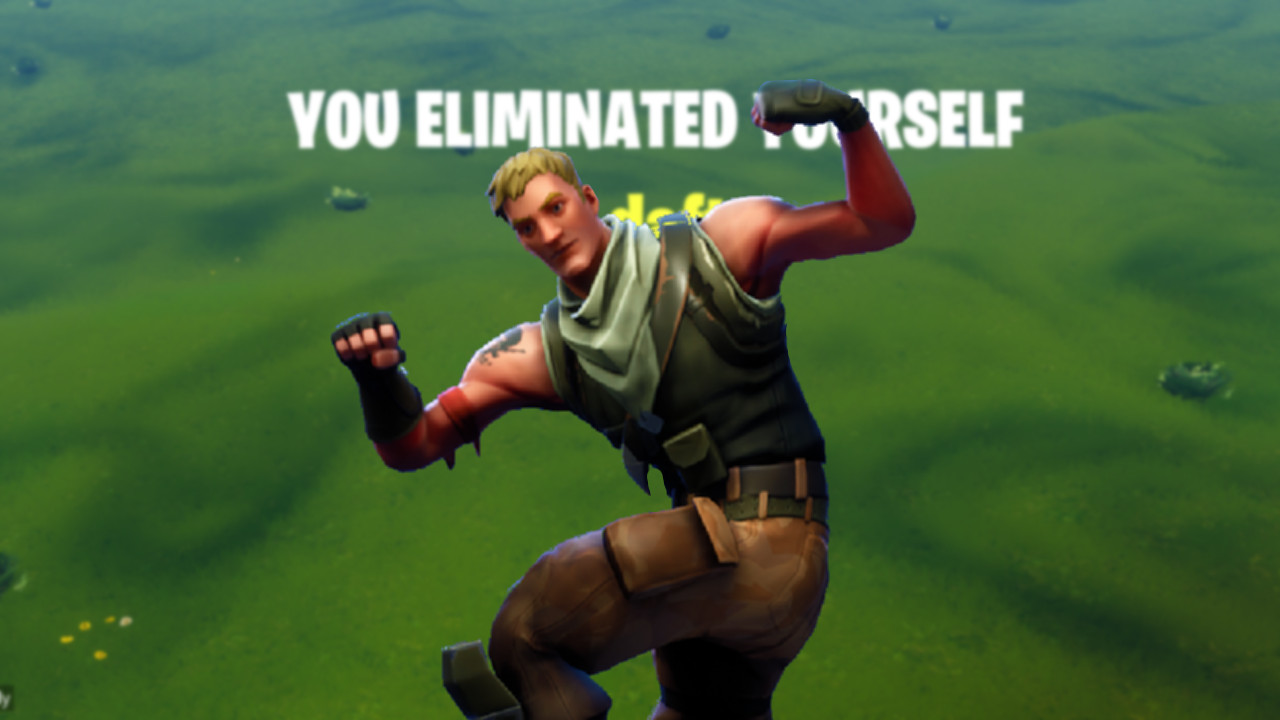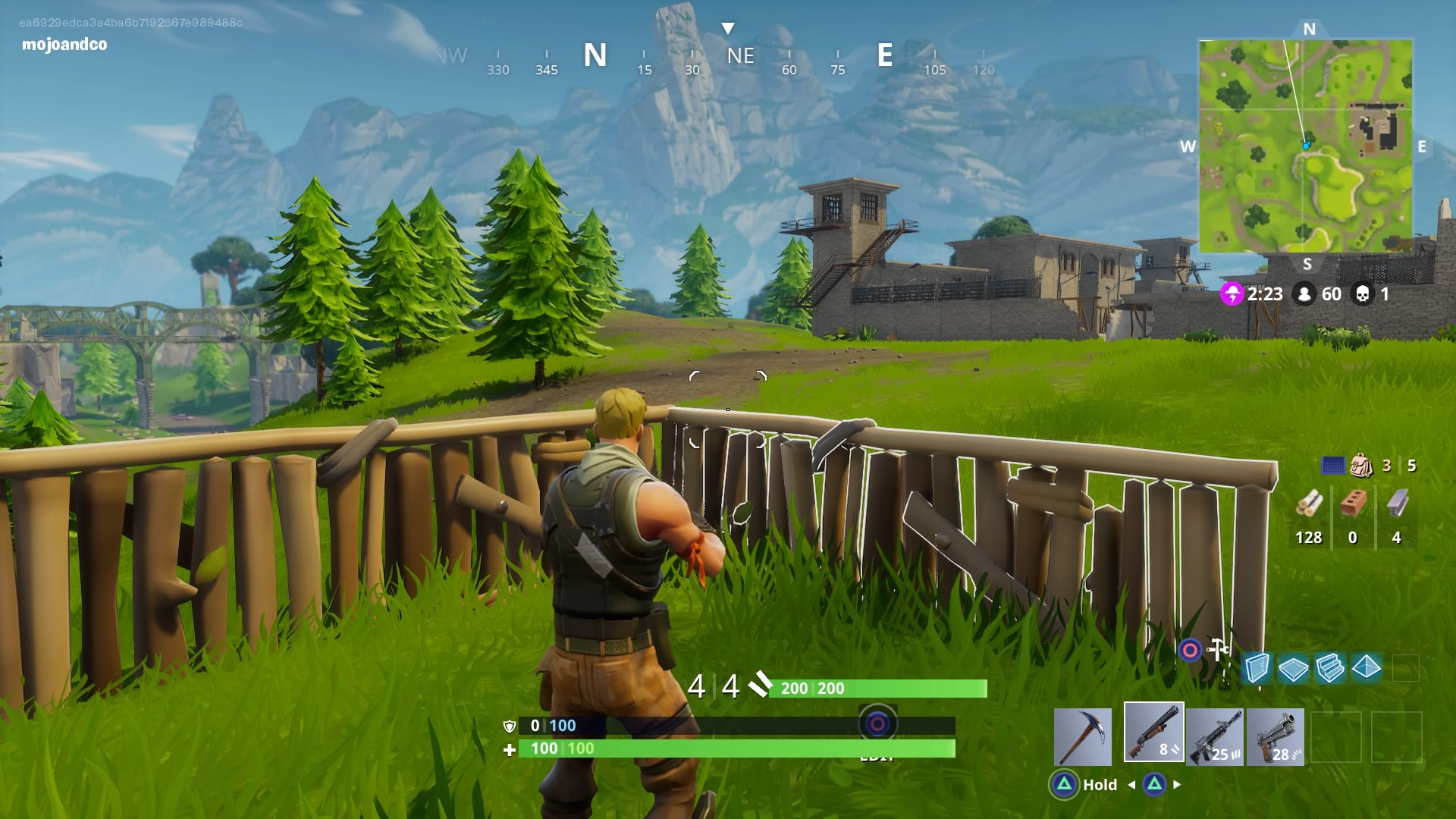How Fortnite’s spectator cam messes with your brain to make you like your enemies
Spectating in Fortnite is just a whirlwind of emotions, and here’s why

Fortnite has its fair share of online toxicity - that’s just the nature of any multiplayer game. From name calling to gloating, stream sniping, or that guy who always has their TV and music on full blast through the mic (seriously, stop). But it does have one interesting mechanic that, accidentally or by design, makes you care about the most unlikely of people: some random player that killed you.
Assuming you don’t quit the game the second your body vomits out your hard earned gear in a shower of lights, there’s quite a journey in Fortnight’s voyeuristic afterlife. Its spectator mode leaves you, in death as you were in life, peering over the shoulder of someone running around with a gun. Only this time it’s a purely passive experience as you watch the person who beat you, play on.
The immediate reaction is obviously to be slightly angry. Maybe a name here, an expletive there, the controller might get set down a touch harder than usual. You stare at the back of their head, frowning and muttering. Casting aspersions at their skill/luck/parentage, and rueing the blatantly shitty combination of events, items and timing that got you killed. Beliefs are one of the hardest things for people to change, and it’s far easier for most gamers to conjure up completely new beliefs about lag, loadouts, and the general ‘being a dick’-ness of the other player, than to challenge their belief in their abilities. There’s no way they might have been beaten fair and square.
Initially, you probably keep watching just to see what happens. A faint, maybe not fully admitted, gloating hope that you’ll see them fall so you can transfer the burn of your failing into crowing over theirs. But odd things can happen if they don’t die and you stick around - the harder they fight, the further they get, the more you start to side with them. If they win a shootout, you’ll probably start to cheer them on. That enemy starts to become, if not exactly a friend, someone you start to become emotionally invested in. Ultimately living vicariously through their, and any of their successors, progression.
It’s the complete opposite of the usual effect a killcam might have. They highlight the moment of defeat and then end, reinforcing failure and leaving you with it. A spectator cam like Overwatch doesn’t have the same effect either, because you’re still a part of the game and waiting to get back in. At best you might curse or cheer something that happens in the interval, but you’re still basically involved and warming up on the sidelines. Fortnite’s ability to make you bond with your nemesis and become part of an unseen team cheering them on is fairly unique.
There are more than a few reasons behind this as well. Not least of which is the literal empathy that forms as you watch them fight. And I’m talking dictionary definition empathy here, not the ‘I need to pretend I care’ stuff most people wave about when they’re worried about being judged. Empathy, by definition, is the ability to imagine yourself in someone else’s position. And what clearer example of that is there than Fortnite’s spectator cam - instantly letting you re-experience what you were just doing, by proxy. You’re reliving it all again and, thanks to things in your brain called mirror neurons, that’s not just a turn of phrase.
Some bits of your brain fire the same way whether your playing Fortnite or watching it
Mirror neurons are cells in the brain that fire in the same way when you watch something happen, as when you actually perform the action yourself. Quite what they’re for is still a bit unclear - learning new skills by observation or imitation is one idea, understanding others better is another - but the fact remains that some bits of your brain fire the same way whether you’re playing Fortnite or watching it. Seeing someone else playing is triggering all the same parts of your brain that have barely had a chance to cool down. In away, when you watch your successor fight on, part of your brain is still playing.
Weekly digests, tales from the communities you love, and more
And there’s more. There’s a psychological thing call ingroup favouritism. Basically it takes next to nothing for people to identify as a group and immediately dislike people that aren’t in it. Literally nothing. A famous experiment once saw a teacher split her class into two groups - blue eyes and brown eyes - as part of a lesson on racial prejudice. They then told the children that blue eyes were better, and by the end of the day they were openly ridiculing and persecuting the brown eyes. That’s all it took for the kids to form a groups that saw each other as enemies.

If something as meaningless as eye colour can bind people together then what about you and the person you’re watching play as you share that fight to survive? You becomes an ‘ingroup’ and everyone else becomes the ‘outgroup’, leading to ‘outgroup derogation.’ That’s basically a posh way of saying you hate the other guys. You might not have liked the person that killed you, but you’re now more or less on the same side, so you like the people trying to kill them even less.
If nothing else it is, for most people, only human to care about other people, especially when you see them struggle against adversity. It’s just that online games usually frame things in the worst way possible for that. Anonymity generally always makes people dicks, for example. While killcams, or more general spectator cams, separate and prevent you from seeing rivals as human: a key technique used by both military, governments and hate groups to make it easier to hurt people. Fortnite, on the other hand, not only drops you directly into the shoes of someone trying to do what you were just doing, but has an intimacy that lets you identify with the person doing it. If more games could do that then maybe the online world would be a little but nicer for everyone.
Looking for more Fortnite? Then stock up on loot with our Fortnite secret chest guide.

I'm GamesRadar's Managing Editor for guides, which means I run GamesRadar's guides and tips content. I also write reviews, previews and features, largely about horror, action adventure, FPS and open world games. I previously worked on Kotaku, and the Official PlayStation Magazine and website.


